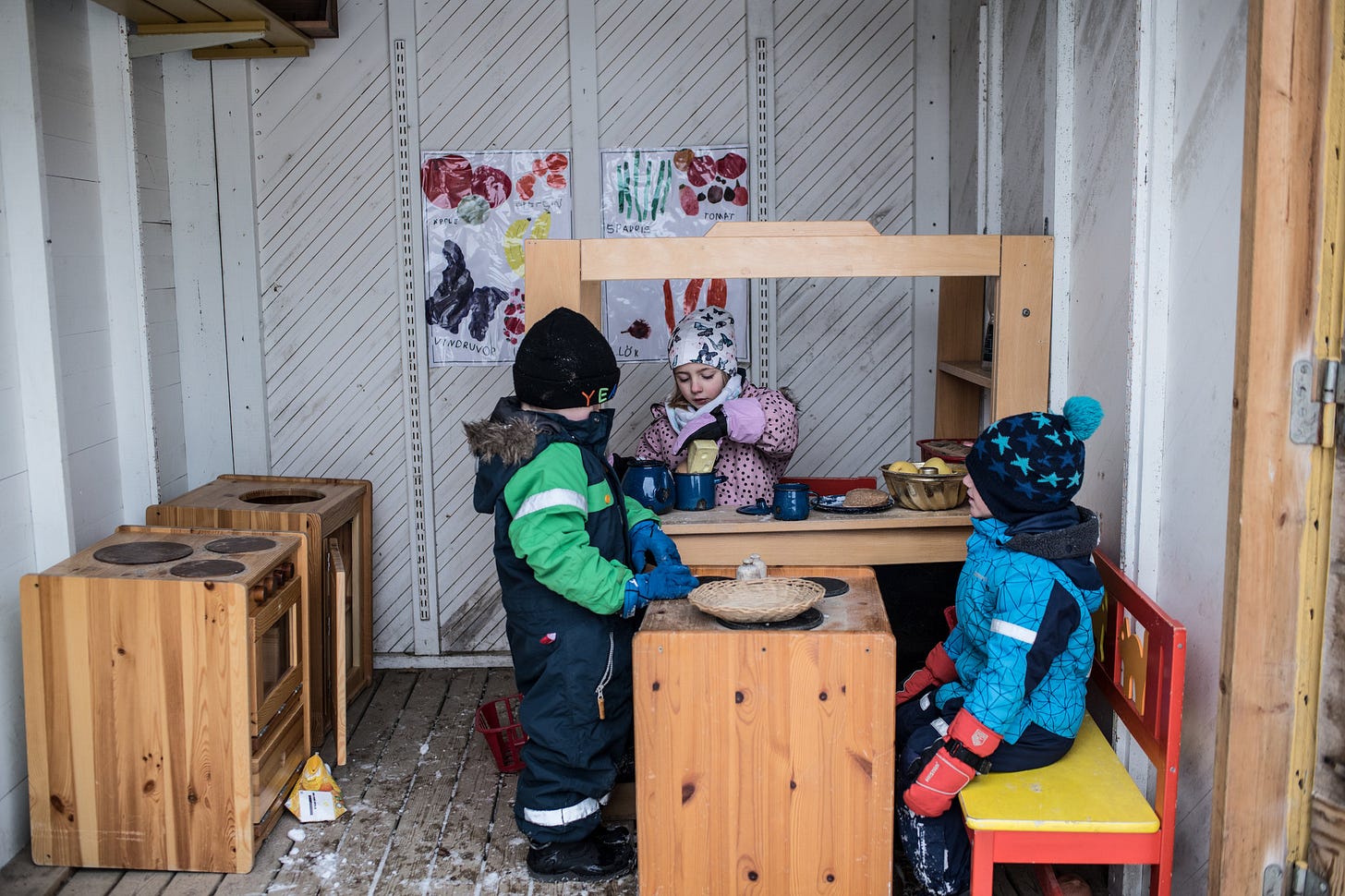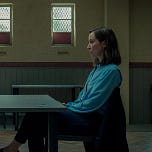Police burst into 13-year-old Jamie Miller's bedroom, handcuffing him for the alleged murder of his classmate, Katie. Over four harrowing episodes, Netflix's Adolescence—shot in one continuous take—forces us to witness how a boy becomes a monster. But this isn't just true crime drama. It's a forensic examination of how the attack on masculinity starts as early as the age of 10.
The most chilling moment comes when Jamie, during a psychological evaluation, reveals why he snapped. After attempting to comfort Katie when her nudes were leaked, she called him an "incel"—a label that stuck like a brand. "She said I'd always be alone," he mutters. Because of male radicalization via social media, at 13, his romantic destiny and his life is already fated as a loss for humanity.
The series sheds much needed light on the invisible attack on masculinity. And single women know better than anyone that all that radicalized trauma shows up in the dating world; turning dating into an often dangerous experience for women and a mechanism for violence for single men.
Adolescence doesn’t just depict a crime—it traces the bloodstained pipeline from radicalized boy to violent offender. And single women should recognize the pattern immediately: These wounded men become their worst dates, their stalkers, their nightmares.
The data backs the trend:
78% of women report fearing physical harm when rejecting a date or male attention (National Dating Violence Survey, 2024)
"Incel" searches correlate with spikes in misogynist violence (FBI Behavioral Analysis Unit)
"We act shocked when men turn toxic," says psychologist Dr. Julia Shaw, "but Adolescence shows us the recipe: Take an impressionable boy, deny him emotional tools, feed him extremist content, and wait for the explosion. Dating apps just distribute the shrapnel."
How We Manufacture Broken Men
Jamie's story feels shocking, but it's frighteningly logical. From playground to prison, boys are conditioned into emotional illiteracy:
In elementary school, Jamie would have learned that "real men don't cry"—a lesson reinforced when his tears earned him nicknames like "crybaby" or "soy boy." By middle school, his natural hyperactivity is 3x more likely to be punished than in girls, per CDC data. Under these circumstances, he would have been medicated into submission rather than nurtured.
Then introduce social media's radicalization pipeline. We see glimpses of it in Adolescence when detectives discover Jamie's feeds flooded with memes about "Chads and Staceys"—the same algorithm that, in real life, pushes 1 in 5 boys toward extremist "men's rights" content before they can drive (Common Sense Media).
"People act like incels are born, not made," says Dr. Laura Bates, author of Men Who Hate Women. "But Jamie shows us the recipe: Take one vulnerable boy, strip him of emotional tools, marinate him in online misogyny, and wait for the explosion."
The Dating Fallout
Fast forward 10 years. The Jamies of today aren't holding knives—they're holding dating app profiles.
Sarah, 28, knows the type. "Last week, a date went from calling me 'wifey material' to ranting about 'female hypergamy' when I said no to drinks at his place," she says. "It's like they've been brainwashed."
She's not wrong. Research shows 62% of single men under 30 now believe dating is rigged against them (PEW). Sarah, like many single women, has stopped asking ‘Where have all the good men gone?’
She already knows the answer. ‘They’re still stuck in some Reddit thread comparing women to used cars,’ she says. Adolescence shows why: the Jamies of today were radicalized before they could be raised to be suitable partners.
They were groomed by algorithms telling them love is a transaction, rage is empowerment, and their loneliness is women’s fault. So yes, good men exist—but they’re drowning in the same toxic soup that turned Jamie into a killer.
The tragedy? These men aren't inherently toxic. They're products of an intentional attack that:
Taught them vulnerability is weakness
Flooded their feeds with Andrew Tate clips disguised as "self-improvement"
Gave zero guidance on handling rejection beyond "man up"
Immersed them in porn before they are able to understand the value of emotional connection
Adolescence director Philip Barantini put it bluntly: "We show boys porn before we show them affection, then wonder why they can't connect."
Rewriting the Script
But here's where Adolescence stops being a warning and becomes a roadmap for those who will listen.
In one poignant subplot, Detective Bascombe reconnects with his own son through the case. Their breakthrough comes when the detective finally asks, "How are you really feeling?"—a question few men ever hear from their male role models.

This moment mirrors real-world programs proving change is possible and that healthy masculinity can be taught:
In Sweden's gender-neutral preschools, boys also play with baby dolls and as a result grow into men with 3x lower domestic violence rates.
The U.K.'s "Good Lad Initiative" has slashed revenge porn cases by 41% simply by teaching teens that rejection isn't annihilation.
American schools using The Mask You Live In curriculum report 32% fewer fights after boys learn to articulate emotions beyond anger.
"The solution isn't complicated," says educator Jackson Katz. "We need to raise boys who see strength in kindness, not control."
And Katz is right. The solution isn’t complicated but it does require that boys are taught in groups to navigate social dynamics, to allow for emotional vulnerability and to engage in play that reflect their life goals (finding a spouse, being a good father to children).
Your Role in the Revolution
As the credits roll on Adolescence, we're left with Jamie's parents sobbing over what they "could have done differently." But the real question is: What will we do differently?
For Single Women:
Spot the wounded Jamies—not to fix them, but to avoid becoming their emotional (sometimes physical) punching bags.
Respond positively to emotional courage. The guy who says "I'm nervous"? That's the real alpha.
Continue to set boundaries for yourself. Don’t let men ‘neg’ you or tell you what to do with your body.
For Single Men:
Recognize that you have likely been radicalized then take responsibility.
Limit the time you spend on social media.
Purge your social media of red pill content.
Discard and invalidate the 80/20 mentality. It’s not real.
Appropriately contextualize and emotionally process rejection.
For Parents:
Ban "man up" from your vocabulary. Try "I see that hurt you" instead.
Audit your sons’ social media. That gaming influencer? Check if his next video is "why women owe you sex."
Demand "healthy masculinity" education in schools.
Boycott content creators who profit and exploit male loneliness.
Talk to your sons. Question what they think they know about dating dynamics. Push them to think critically about what they engage with online.
Because the final scene of Adolescence isn't just Jamie's tragedy. It's ours. Unless and until we change the script.
Hashtags:
#Adolescence #RaiseBetterMen #DatingRevolution #HealthyMasculinity #SocialMedia #tech #culture #dating #netflix













Share this post